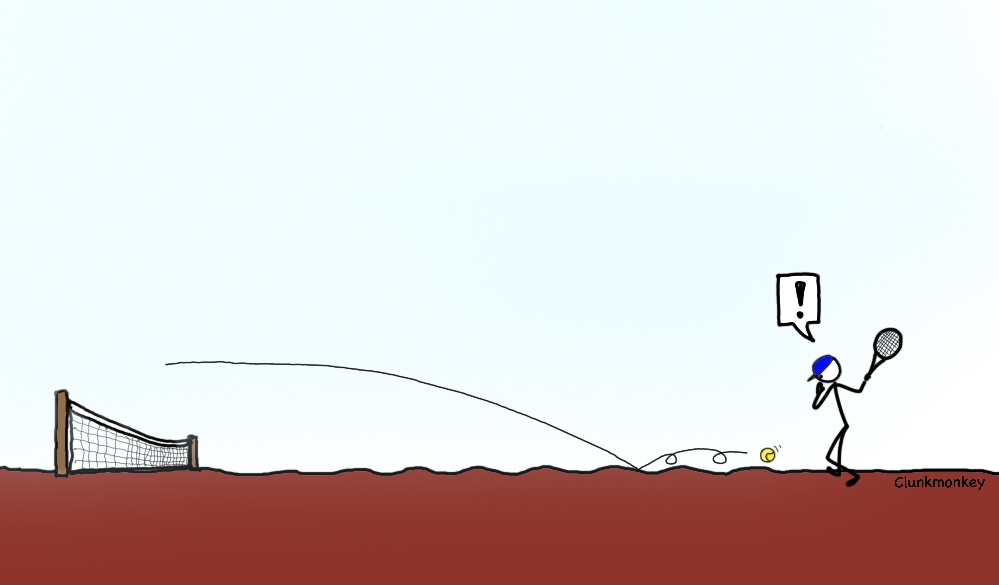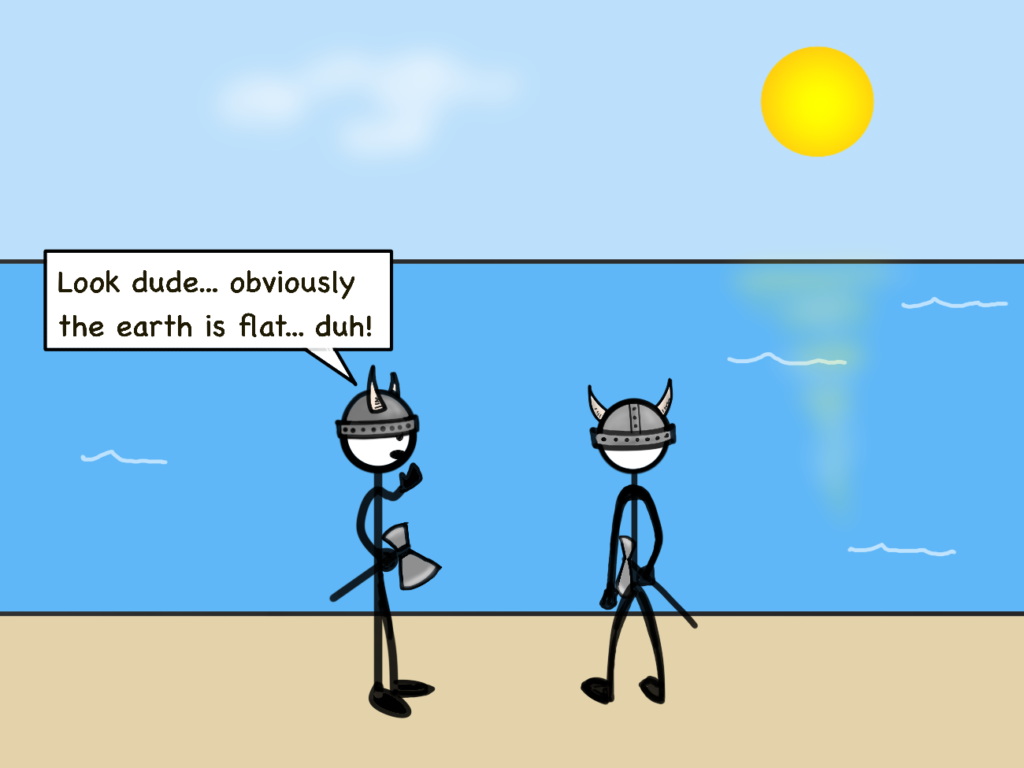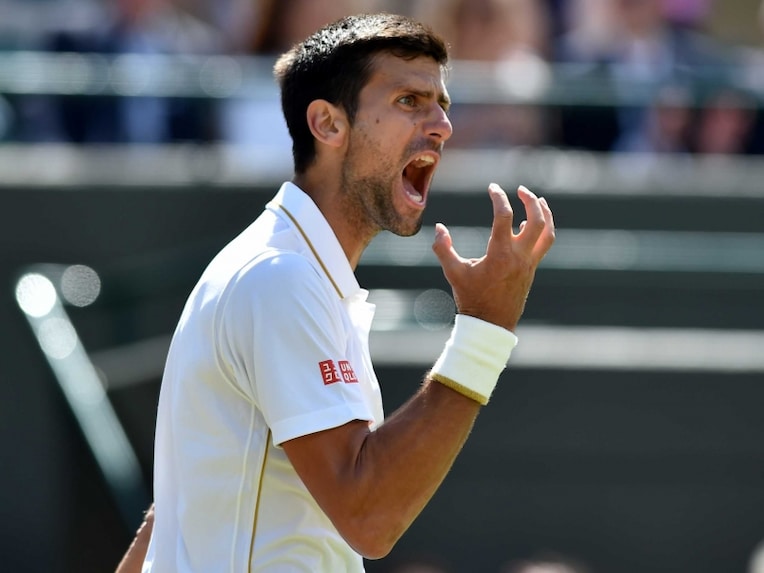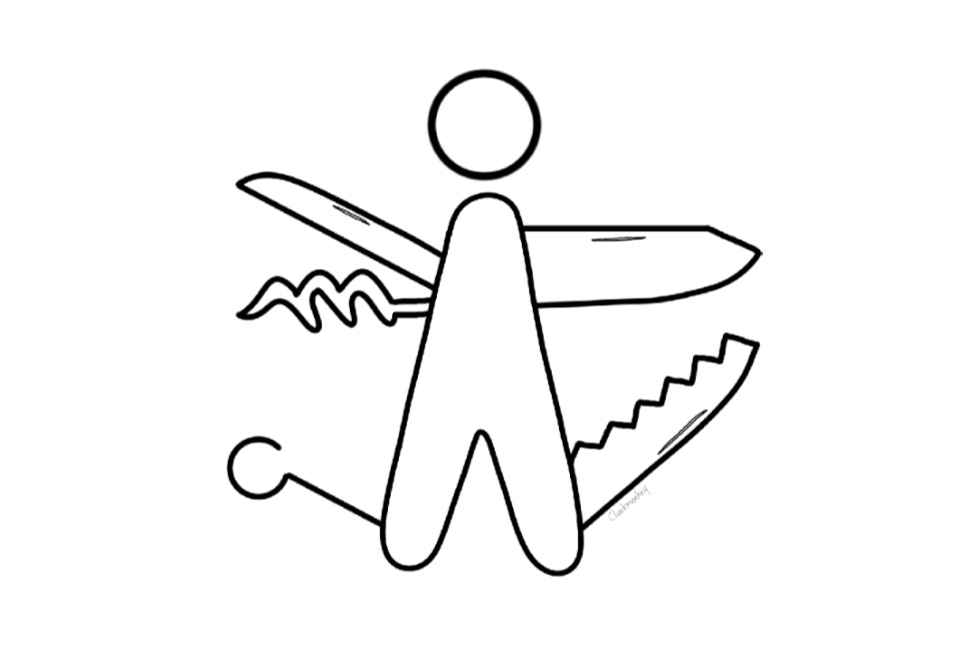 I’m playing a tournament match on a bad clay court. Poor irrigation design creates long dry strips on the court. The wind blows away the clay on top of these areas. The result… washboarding.
I’m playing a tournament match on a bad clay court. Poor irrigation design creates long dry strips on the court. The wind blows away the clay on top of these areas. The result… washboarding.
It’s impossible to know what will happen when the ball hits the court. If it lands on an upslope…
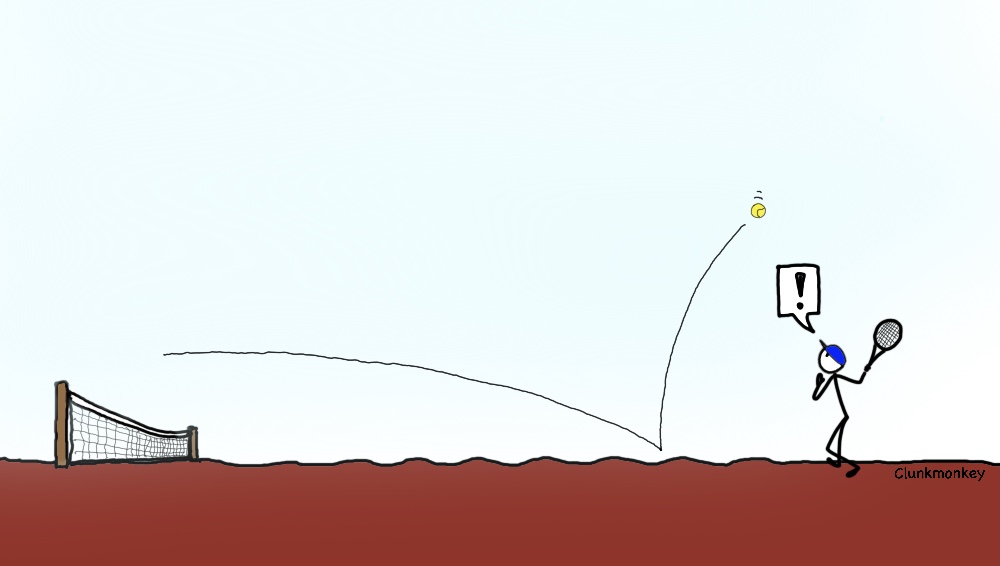 And if it hits a downslope…
And if it hits a downslope…
My opponent and I aim for the bad areas in each others court, and do everything we can to keep the ball from landing in ours.
Technique?
Game plan?
They’re out the window. The best improviser will carry this day.
I’ve played thousands of competitive matches. I can count on one hand the number of times improvisation hasn’t been the key.
Orthodoxy
Repeatable “good” outcomes are the holy grail of sport. (Life too.)
Historically, we’ve been promised that ideal technique delivers them.
The orthodox school of human performance. Their central tenet: skill is the ability to repeat ideal technique.
Their underlying assumptions:
- There is ideal technique.
- Ideal technique needs to be prescribed.
- Repeatable “good” outcomes (low outcome variability) are achieved through consistently repeating movements (low movement variability).
- The ideal technique can be performed in any situation, if the player knows the proper adjustments.
Intuitively, it makes sense. Problem is, our intuitions often mislead us.
There are BIG problems with the orthodoxy.
- There is no such thing as ideal technique. Yeah, I know you don’t like to hear this… but it’s TRUE! From blacksmithing to football to golf to tennis to typing to volleyball, the research finds a great variety of technique among skilled experts. But… you already know this. If I were to reduce any two pro players… say, Venus and Serena Williams to animated digital stick figures that accurately displayed their forms, you would instantly see the differences between the two. And they are siblings… trained by the same coach.
- The research also finds a lot of variability in between movements of the same “skilled” expert. In other words, repeatable “good” outcomes actually depend on movement variability.
- Obviously, if there is no “ideal” technique, there’s no need for prescription. But will people learn the “fundamentals if we just let them play? An analysis of dozens of major studies says yes… but only the fundamentals that matter.
When I was a young player, a USPTA Master Pro assured me that he’d gotten to the point where he could see the ball hit the strings. That became my goal too. I mean, surely that had to be at least one fundamental reason he was so good.
Talk about a wild goose chase…
Years later I discovered that the great Vic Braden proved that it isn’t possible to see the ball hit the strings… ten years before my pro told me he could do it.
Tennis is such a great sport… even decades of crappy coaching can’t kill it.
By the way, replace ideal technique with lifestyle… coach with teacher… motor skills with habits… all of the above is still true.
McGyvering
The central tenet: skill is the ability to adapt to changing conditions.
The underlying assumptions:
- Adaptation (McGyvering) is a self-organized response to a change in conditions. (Think flock of starlings instead of marching band.)
- McGyvering is learned through trial and error.
- The best practices to develop it include decision making and consequences, AND offer unique problems that require McGyvering to solve. (What’s a unique problem? We’ll get to that.)
- Instruction happens ONLY when it’s necessary. (For most of my colleagues that won’t be nearly as often as they think) And when we do coach, we steer players towards their solutions… not ours. Yes, they are different…
We always think we know what’s best for others. But that’s not possible, you know.
“Let me help you or you will drown said the monkey to the fish, as he put it high in a tree.”
No two of us can McGyver in the same way. We are each a combination of abilities and vision that has never existed before. We have different visions of the possible. Distinct payoff spaces too.
Does it work?
What I’m talking about is not just a theory in the colloquial sense. You know… some idea hatched in a cheap hotel shower, after a night of heavy drinking, that’s backed by a bunch of other ideas, cooked up by other drunks, that feel like they make sense. This is a theory in the scientific sense. Meaning it’s backed by a body of evidence.
One example of many: a study of creativity in soccer (creative defined as a rare and useful act) compared orthodox instruction with the theory I’m describing here. The study found that this approach led to greater creativity in play than the orthodox method. Equally important, the players reported greater inspiration… and enthusiasm.
And… that makes some obvious sense, right? 22 people doing what comes naturally to them is gonna be a lot more engaging than 22 people all trying to do the same thing.
Again… we’re not only talking sport.
No one knows how McGyver came up with the idea to make a bazooka out of car parts… while the car was moving. But he did. The thought that we have to do something similarly creative… without having any idea of what… or how, makes us feel uncertain. That’s an icky feeling.
Everyone is certain how a marching band does its thing.
Dr Lisa Feldman Barrett is one of the world’s top neuroscientists. Her theory (scientific not colloquial) is that our brain exists to regulate our bodies systems. It does that by being a stingy executor of our bodies finite resources.
Uncertainty is metabolically expensive. This is why 99 out of 100 people prefer certain to icky.
Listen, I’m not here to convince you of anything. It’s your game. Your life too. The information surrounds you. If you’re not interested enough to look into it for yourself, well, that tells you everything you need to know.
What’s the Point?
You and I are tennis players.
We’re interested in fun tennis experiences.
Many, maybe you too, have mistakenly bought into the belief that winning makes playing more fun?
Winning can’t make playing more fun… because winning concludes play. It’s like saying the fun of eating is being full. Playing to win is playing against play.
If you’re not buying that argument, use your own eyes. Professionals are the winningest players on earth, right? By your logic they should be having the time of their lives on the court.
Half the people who serve it up on any given day, lose. If winning is all it’s about, that’s a lot of disconsolate people.
I’m proposing a more complex equation than win or lose.
The more freely (naturally) you play, the more able you are to lose yourself in play. And THAT is the BIG capital W, Win. If you happen to also win… you’re a double winner.
What’s freer… trying to remember what you’re supposed to do (like the whole thing is some test), or just doing what comes to you?
Information Rich Games
So with all this in mind, I have created some information rich games that present unique problems for you to explore and solve… and begin to free yourself.
Ok, now I’ll answer your uniqueness question. If we change equipment in the middle of a game… use foam balls, or a youth racket or… if we take a stroke off the table or… (skies the limit, right?) Those are unique problems you have little to no experience solving.
You are now off the map… exploring the tennis environment. McGyvering.
Yes, I know, changes like this seem… well… unorthodox. But that is because the orthodoxy is the only voice you’ve ever heard.
I read a story about a black slave in America who was freed, and given a plot of land. He was a good farmer… made a ton of money. And then, believe it or not, he bought and bred and beat slaves.
His name was William Ellison.
Why did Bill, a former slave, become a slaver? Rich people buying and selling and beating slaves was all he’d ever known. Once he got some cash… he turned to the only construct he knew.
I’ve said it before, I’m going to say it again… right now in fact. The more one’s status is connected to a construct, the more loyal to that construct they’ll be… and the more dangerous they are to you.
Paraphrasing the great Robert Oppenheimer, “there are no secrets about the world of sport. Only secrets about the thoughts and intentions of people.”
If you’re wondering what all this has to do with tennis… not much, probably… but then again, maybe a lot.
Back to Dr Feldman Barrett for a minute. The demands and distractions of modern life cause many of us to run energy deficits. The brain does what every executor does when it’s faced with a deficit… it cuts spending.
You find yourself doing the same old things, with people just like you. Predictable consumes less energy.
Aware of it or not, we are ALWAYS cultivating the environment that’s wiring our brain.
And so we come to self-care. Exploring that, we’ll find another important topic. And another. There are so many layers. So many things we can’t explain… yet.
We’re far afield from ideal technique and reps.
I have known a lot of people who said that if they only had “X”, they could do “Y”.” Funny thing… many got “X”… and “Y” never happened.
And then there are people like Steve Chen. I coached Steve. He’s a good tennis player. A stubborn… determined guy too. (Those things are often related.) He made “Y” happen, without saying anything about needing an “X”. (If you don’t know, his “Y” was a little thing called YouTube.)
The logical, linear narratives from academia have dumbed down our thinking. The real isn’t as linear and logical as the academics say it is.
Sometimes when I edit these essays… I wonder what the fuck I was thinking when I wrote them. I’m combatting that by editing less.
Anyway… back to information rich games. Repeatable “good” outcomes are the product of Mcgyver-ability. The more you practice Mcgyvering, the better you get at it.
This link takes you to a free, downloadable PDF of practices I designed. They will help you with that. (When you click “I want this” the price box will turn red. Enter “0”… and it’ll be free.)
You’re welcome.
There’s one more thing I want to say… you only know a persons true nature when they don’t want anything from you.
Ok. I’m done.
Until next time,
Play well.
P.S. After you download your free practices, you might as well buy my book: “The Art of Holding Serve”. A Hall of Fame coach said it’s probably the most interesting tennis book he’s read. (I’m pretty sure he meant that in a good way.)

